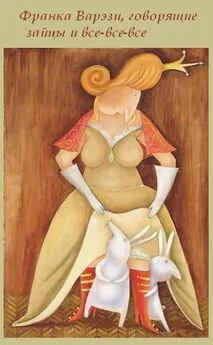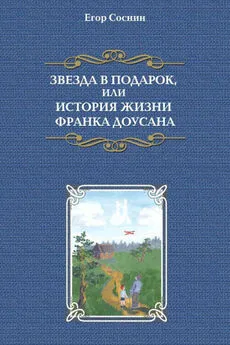Метод Франка - Milne. Winnie-the-Pooh
- Название:Milne. Winnie-the-Pooh
- Автор:
- Жанр:
- Издательство:неизвестно
- Год:0101
- ISBN:нет данных
- Рейтинг:
- Избранное:Добавить в избранное
-
Отзывы:
-
Ваша оценка:
Метод Франка - Milne. Winnie-the-Pooh краткое содержание
Milne. Winnie-the-Pooh - читать онлайн бесплатно полную версию (весь текст целиком)
Интервал:
Закладка:
“You'll be quite safe with him (ты будешь совершенно безопасным = тебе будет совершенно безопасно с ним). Good-bye,” and he trotted off home as quickly as he could (до свидания, — и он унесся рысью домой, так быстро как он мог = со всех ног ), very glad to be Out of All Danger again (очень довольный, быть = что /он/ снова Вне Всякой Опасности).
Christopher Robin came slowly down his tree (Кристофер Робин медленно спустился по /своему/ дереву).
whistle [wIsl], oak-tree ['quktrJ], danger ['deInGq]
Pooh looked up at the sky, and then, as he heard the whistle again, he looked up into the branches of a big oak-tree, and then he saw a friend of his.
“It's Christopher Robin,” he said.
“Ah, then you'll be all right,” said Piglet.
“You'll be quite safe with him . Good-bye,” and he trotted off home as quickly as he could, very glad to be Out of All Danger again.
Christopher Robin came slowly down his tree.
“Silly old Bear,” he said, “what were you doing (глупый старый Мишка, — сказал он, — что ты делал)? First you went round the spinney twice by yourself (сначала ты прошел вокруг рощицы два раза один), and then Piglet ran after you and you went round again together (а потом Пятачок побежал за тобой, и вы прошли еще раз вокруг вместе), and then you were just going round a fourth time— (а потом вы шли как раз вокруг четвертый раз)”
“Wait a moment,” said Winnie-the-Pooh, holding up his paw (подожди секундочку, — сказал Винни-Пух, поднимая свою лапу).
He sat down and thought, in the most thoughtful way he could think (он сел и задумался, самым задумчивым способом, /каким только/ он мог думать). Then he fitted his paw into one of the Tracks (затем он вложил свою лапу в = приложил свою лапу к одному из Следов)... and then he scratched his nose twice, and stood up (а потом он почесал свой нос два раза и встал).
fourth [fLT], thoughtful ['TLtful], twice ['twaIs]
“Silly old Bear,” he said, “what were you doing? First you went round the spinney twice by yourself, and then Piglet ran after you and you went round again together, and then you were just going round a fourth time—”
“Wait a moment,” said Winnie-the-Pooh, holding up his paw.
He sat down and thought, in the most thoughtful way he could think. Then he fitted his paw into one of the Tracks ...and then he scratched his nose twice, and stood up.
“Yes,” said Winnie-the-Pooh (да, — сказал Винни-Пух).
“I see now,” said Winnie-the-Pooh (теперь я вижу = понял , — сказал Винни-Пух).
“I have been Foolish and Deluded,” said he (я был Глуп и Обманут, — сказал он; to delude — обманывать, надувать, вводить в заблуждение ), “and I am a Bear of no Brain at All (и я Мишка Совсем без Умишка).”
“You're the Best Bear in All the World (ты Самый Лучший Медведь во Всем Мире),” said Christopher Robin soothingly (сказал Кристофер Робин успокаивающе).
“Am I?” said Pooh hopefully (я = да ? — спросил Пух с надеждой). And then he brightened up suddenly (и потом он вдруг просиял; bright — яркий; блестящий; светящийся ).
“Anyhow,” he said, “it is nearly Luncheon Time (как бы там ни было, — сказал он, — /уже/ почти Обеденное Время / Пора Обедать).”
So he went home for it (и он пошел домой для этого = обедать ).
foolish ['fHlIS], world [wWld], luncheon ['lAnCqn]
“Yes,” said Winnie-the-Pooh.
“I see now,” said Winnie-the-Pooh.
“I have been Foolish and Deluded,” said he, “and I am a Bear of no Brain at All.”
“You're the Best Bear in All the World,” said Christopher Robin soothingly.
“Am I?” said Pooh hopefully. And then he brightened up suddenly.
“Anyhow,” he said, “it is nearly Luncheon Time.”
So he went home for it.
Chapter 4,
IN WHICH EEYORE LOSES A TAIL AND POOH FINDS ONE
Глава 4,
В которой Иа теряет хвост, а Пух находит один = его
THE Old Grey Donkey, Eeyore, stood by himself in a thistly corner of the forest (Старый Серый Ослик Иа стоял один-одинешенек в заросшем чертополохом углу леса; thistle — чертополох ), his front feet well apart, his head on one side, and thought about things (/его/ передние лапы очень врозь = широко расставлены , /его/ голова набок, и думал о вещах = о чем-то ). Sometimes he thought sadly to himself, “Why?” (иногда он думал печально про себя: почему?) and sometimes he thought, “Wherefore?” (а иногда он думал: по какой причине?) and sometimes he thought, “Inasmuch as which?” (а иногда он думал: ввиду чего то, что / поскольку то, то что?; inasmuch as — поскольку, так как, ввиду того, что ) —and sometimes he didn't quite know what he was thinking about (а иногда он совсем не знал, о чем он думает). So when Winnie-the-Pooh came stumping along (поэтому когда притопал: «пришел топоча» Винни-Пух), Eeyore was very glad to be able to stop thinking for a little (Иа был очень рад, /что/ может перестать думать на некоторое время; to be able to V — мочь, быть в состоянии ), in order to say “How do you do?” in a gloomy manner to him (для того чтобы сказать ему в мрачной манере: как /ты/ поживаешь?).
Eeyore [J'jL], donkey ['dONkI], thistly ['TIslI]
THE Old Grey Donkey, Eeyore, stood by himself in a thistly corner of the forest, his front feet well apart, his head on one side, and thought about things. Sometimes he thought sadly to himself, “Why?” and sometimes he thought, “Wherefore?” and sometimes he thought, “Inasmuch as which?”—and sometimes he didn't quite know what he was thinking about. So when Winnie-the-Pooh came stumping along, Eeyore was very glad to be able to stop thinking for a little, in order to say “How do you do?” in a gloomy manner to him.
“And how are you?” said Winnie-the-Pooh (а как ты? — спросил Винни-Пух).
Eeyore shook his head from side to side (Иа покачал /своей/ головой из стороны в сторону; to shake — трясти ).
“Not very how,” he said (не очень как, — сказал он). “I don't seem to have felt at all how for a long time (мне кажется, я не чувствовал себя совсем как на протяжении долгого времени = уже давно ; to feel — чувствовать ).”
“Dear, dear,” said Pooh (ах-ах-ах, — сказал Пух), “I'm sorry about that (я сожалею об этом). Let's have a look at you (давай-ка посмотрим на тебя; to have a look — посмотреть ).” So Eeyore stood there, gazing sadly at the ground (так Иа стоял там, уставившись грустно на землю; to gaze — пристально глядеть; вглядываться; уставиться ), and Winnie-the-Pooh walked all round him once (а Винни-Пух обошел один раз полностью вокруг него).
“Why, what's happened to your tail?” he said in surprise (ой, что случилось с твоим хвостом? — спросил он в удивлении = удивленно ).
how [hau], sorry ['sOrI], walk [wLk]
“And how are you?” said Winnie-the-Pooh.
Eeyore shook his head from side to side.
“Not very how,” he said. “I don't seem to have felt at all how for a long time.”
“Dear, dear,” said Pooh, “I'm sorry about that. Let's have a look at you.” So Eeyore stood there, gazing sadly at the ground, and Winnie-the-Pooh walked all round him once.
“Why, what's happened to your tail?” he said in surprise.
“What has happened to it?” said Eeyore (/а/ что с ним случилось? — спросил Иа).
“It isn't there (его там нет)!”
“Are you sure (ты уверен)?”
“Well, either a tail is there or it isn't there (ну, либо хвост есть /там/, либо его нет /там/). You can't make a mistake about it (ты не можешь = невозможно ошибиться в этом). And yours isn ' t there (а твоего нет /там/)!”
“Then what is (тогда что есть / что там)?”
“Nothing (ничего).”
sure [Suq], either ['aIDq], nothing ['nATIN]
“What has happened to it?” said Eeyore.
“It isn't there!”
“Are you sure?”
“Well, either a tail is there or it isn't there You can't make a mistake about it. And yours isn't there!”
“Then what is?”
“Nothing.”
“Let's have a look,” said Eeyore (давай посмотрим, — сказал Иа), and he turned slowly round to the place where his tail had been a little while ago (и он медленно повернулся кругом до того места, где его хвост был недавно: «маленькое время назад»), and then, finding that he couldn't catch it up (а потом, обнаружив, что он не может его догнать), he turned round the other way (он повернулся = стал поворачиваться кругом в другую сторону), until he came back to where he was at first (пока он /не/ вернулся туда, где он был сначала), and then he put his head down and looked between his front legs (и тогда он опустил /свою/ голову и посмотрел между передних ног; to put down — опускать ), and at last he said, with a long, sad sigh (и наконец он сказал с долгим, грустным вздохом), “I believe you're right (я полагаю, что ты прав).”
“Of course I'm right,” said Pooh (конечно, я прав, — сказал Пух).
slowly ['slqulI], ago [q'gqu], course [kLs]
Читать дальшеИнтервал:
Закладка:






![Джеймс Купер - Пионеры, или У истоков Саскуиханны [The Pioneers, or The sources of the Susquehannah]](/books/1066142/dzhejms-kuper-pionery-ili-u-istokov-saskuihanny-t.webp)
![Коллектив авторов - Сад любви. Из английской романтической поэзии [litres (Метод обучающего чтения Ильи Франка)]](/books/1082624/kollektiv-avtorov-sad-lyubvi-iz-anglijskoj-romanti.webp)
